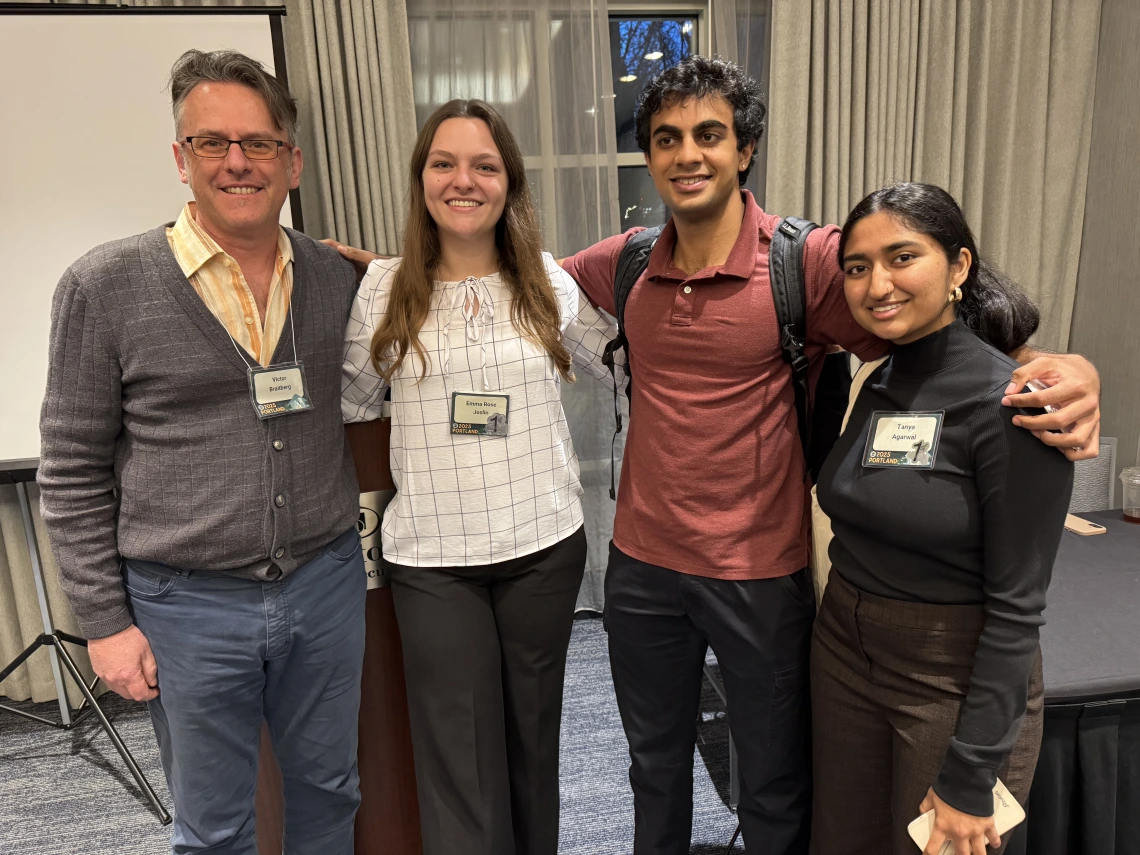On March 21, three Franke Honors College students presented their research at the Society for Applied Anthropology's annual meeting "Revitalizing Applied Anthropology" in Portland, Oregon. The panel, "Bridging Divides: Power, Ethics, and Engagement With the Criminal Legal System," was organized by Dr. Victor Braitberg, Associate Professor of Practice at the W.A. Franke College, and Dr. Robin Reineke, Assistant Professor in the School of Anthropology and Southwest Center.
Senior Emma Joslin (College of Social & Behavioral Sciences - Anthropology/Emergency Medical Services/PreHealth Thematic/Spanish) presented "Prison Medicine: Providing Care in a System Designed to Punish." Her research uses ethnographic fiction to explore the ethical challenges healthcare professionals face in correctional settings, where medical ethics often conflict with institutional goals. Drawing on her dual perspective as an anthropologist and EMT, Joslin's work presents fictional case scenarios that reflect real-world complexities and invite dialogue on potential reforms.
Sophomore Kabir Muthu (College of Science - Neuroscience & Cognitive Science/Consciousness Studies/Electrical & Computer Engineering/Health and Human Values) and Junior Tanya Agarwal (College of Medicine - Physiology & Medical Sciences/Biochemistry/Health and Human Values/Spanish) collaborated on "Beyond Blame: Exploring the Dual Health Impacts of Systemic Racism on Police and Minoritized Communities." Their innovative paper connects two distinct areas of literature, examining how structural racism affects both minoritized communities and the police officers who serve them. By highlighting these shared burdens, their work aims to move beyond polarizing narratives and create opportunities for productive dialogue about addressing public health disparities.
Dr. Braitberg also presented "From Critique to Conversation: How an Anthropologist and Police Officer Reimagined Policing and Structural Racism," co-authored with Tucson Police Lieutenant Steven Simmers. Based on their 14-year friendship and collaborative research, their paper explores how sustained dialogue transformed both individuals' understanding of policing and structural forces, demonstrating the value of anthropological engagement with law enforcement for meaningful reform.
The panel's aim was to bring together researchers and practitioners to examine how their experiences intersect with systems of power in U.S. contexts, while advocating for serious engagement with the lived experiences of professionals in these fields. Rather than dismissing them as enforcers of oppression, the panel called for applied anthropologists to build dialogue and collaboration to better understand these complex worlds and their potential for contributing to meaningful change.


